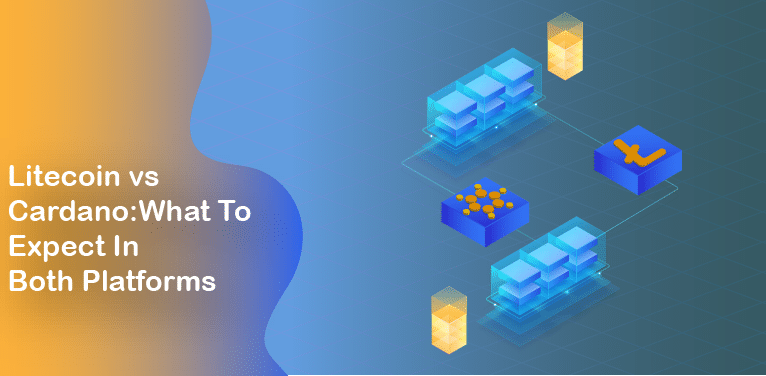Usually, different cryptocurrencies are created to achieve various purposes. Some are designed to disrupt the space, and others may be to improve the operations of existing cryptos.
Today, we will compare Litecoin protocol vs the Cardano algorithm, to show their differences, and the reasons they were founded by notable developers in the crypto realm.
Before the comparison begins, it is worth noting that both LTC and ADA are available on exchanges like WhalesHeaven, which possess incredible technology, with a limited volume of tokens in supply.
What is Litecoin LTC ?
Litecoin is a Peer-to-Peer cryptocurrency based on the PoW network, and it was developed to solve the scalability and transaction speed of Bitcoin. Since it uses the PoW technology, it needs miners to verify transactions and mine block. This open-source platform was created by Charlie Lee, and its code can be accessed on GitHub.
This token was designed to act as a means of payment for individuals and organizations. It is more of a payment tool than Bitcoin because the network is fast and transactions can be verified quickly.
Cardano ADA: What is it?
Charles Hoskinson is the founder of Cardano and a founding member of the Ethereum network. At the moment, the platform is managed by IOHK, a company that builds high-assurance blockchain infrastructure solutions for public, private sector and government clients.
Though Cardano has been around since 2015, it was recently that the smart contract feature was released. Cardano aims to improve the digital payment system, and allow developers to create intriguing projects on the blockchain. With the new smart contract that was released in September 2021, it is expected that many will develop innovations on the network.
Litecoin LTC vs Cardano ADA: what are the differences between them?
• Main Purpose
The idea behind Litecoin was to allow users to send funds between one another without them having to deal with an intermediary or jumping through hoops to create an account. It was developed to be the future of purchases and payment solutions.
Cardano is a public blockchain cryptocurrency that was created by astute developers to host decentralized apps.
• The Creators
Litecoin was developed by Charlie Lee, an Engineering Director, vs Cardano which was founded by Charles Hoskinson.
• Consensus System
Litecoin uses the Proof of Work algorithm that needs intense computing power before verification can occur and the block is mined.
As for Cardano, it utilizes the Proof of Stake consensus mechanism that uses staking to protect its network. It is unlike the Proof of Work system that needs intense energy or data to function.
• Founding Organization
Litecoin was created to act as an open-source and non-profit organization, while the opposite is the case of its counterpart, Cardano.
• Smart contract technology
Litecoin doesn’t accommodate the smart contract functionality, while Cardano recently released its smart contract feature in September 2021.
Where to trade it?
WH Cypher is an innovative multi-signature wallet extension launched by us at WhalesHeaven, and it is designed to solve the security challenges faced by many in the crypto space. As a multi-sig wallet extension, users can store, receive, and send, crypto transactions between multiple cosigners. It allows users to sign before a transaction occurs, choose the destination of their transaction and even trade on our exchange, WhalesHeaven or any other exchange without having to divulge any personal information.
This wallet extension is giving the power to users, as they can anonymously trade on any exchange after signing in, control what happens, and much more.
Our wallet extension, WH Cypher allows users to store different cryptocurrencies, initiate transactions, and receive coins from others. This feature is designed to improve the security of transactions in the crypto space. When two parties want to exchange cryptocurrency, they both have to join as co-signers, and approve the transaction. It is only when both participants have approved that the fund will be released.
Conclusion
Though both platforms may have their differences, they are decentralized networks that work without the intervention of a centralized organization. Their scalability is higher when you compare it to Bitcoin. They are revolutionizing the cryptocurrency space.
